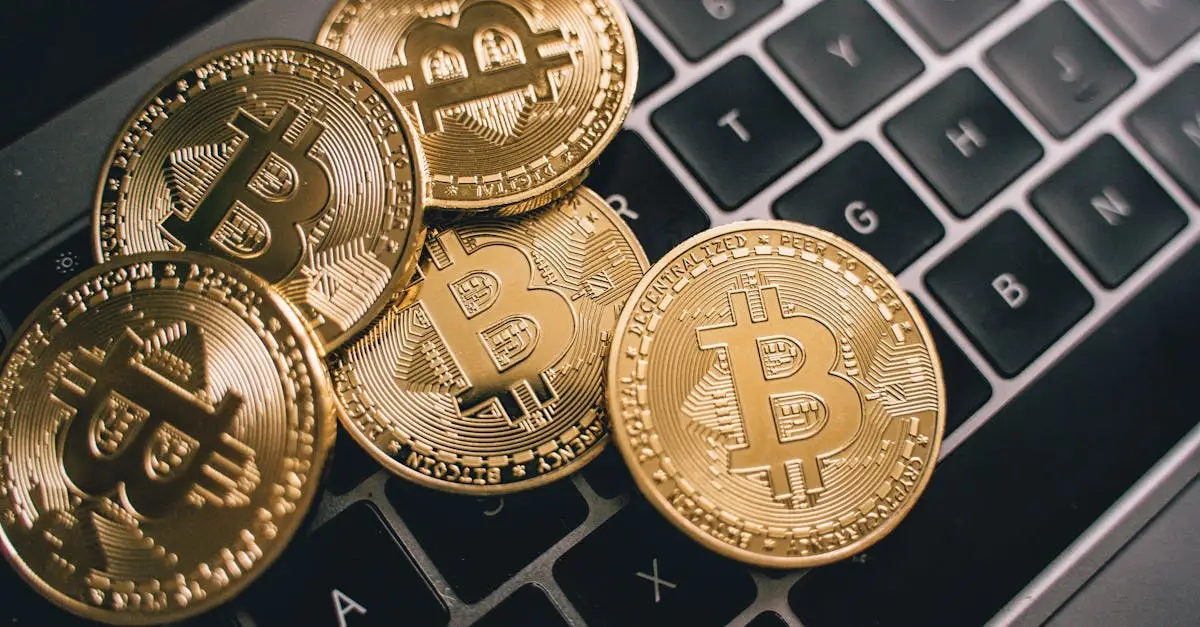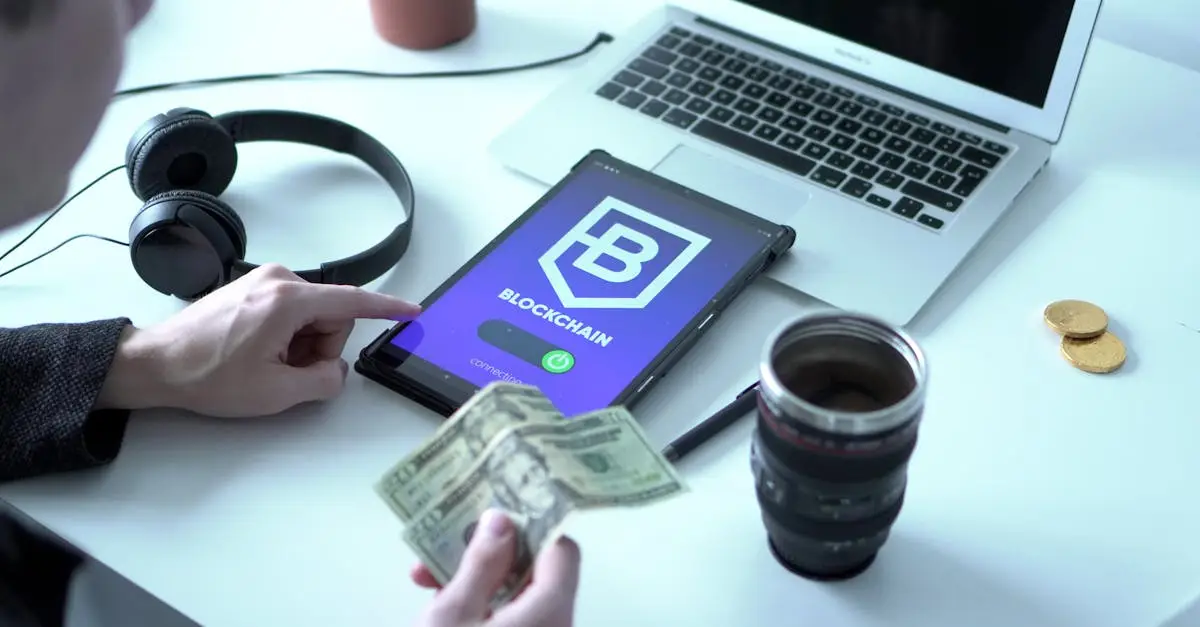Security Challenges in Modern Crypto Mining
The world of cryptocurrency mining has been experiencing a rapid evolution, presenting both opportunities and challenges for miners and investors alike. As the industry grows, so do the intricacies of security challenges that come with it. In this article, we delve deep into the realms of modern crypto mining, highlighting the emergence of this activity, its impact on the ecosystem, technological advancements, and the security concerns that accompany it.
The Emergence of Crypto Mining as a Lucrative Activity
Crypto mining has transformed from a niche hobby to a lucrative business venture. With the increasing popularity and value of digital currencies like Bitcoin, Ethereum, and others, mining has become a profitable avenue for individuals and companies looking to participate in the cryptocurrency market. The allure of earning rewards in the form of coins has attracted a vast number of miners, contributing to the expansion of crypto mining operations worldwide.
The Impact of Mining on the Crypto Ecosystem
As the number of miners increases, so does the overall computational power dedicated to securing cryptocurrency networks. This heightened level of security helps validate transactions, maintain the integrity of the blockchain, and ensure the smooth operation of decentralized systems. However, the growing energy consumption associated with mining activities raises concerns about the environmental impact and sustainability of such operations.
Technological Advancements Boosting Mining Efficiency
Advancements in hardware technology, such as the development of Application-Specific Integrated Circuits (ASICs) and Graphics Processing Units (GPUs), have significantly enhanced the efficiency and speed of cryptocurrency mining. Miners are constantly striving to upgrade their equipment to stay competitive in the ever-evolving landscape of crypto mining. These technological improvements play a crucial role in increasing mining profitability and overall network security.
Understanding the Concept of Mining in Cryptocurrencies
Mining in the context of cryptocurrencies involves the process of using computational power to solve complex mathematical puzzles, thereby validating transactions and adding new blocks to the blockchain. Miners compete to be the first to solve these puzzles, earning rewards in the form of digital coins. This process not only secures the network but also incentivizes miners to participate in maintaining the blockchain’s integrity.
Exploring Different Mining Algorithms and Their Significance
Different cryptocurrency networks utilize various mining algorithms to secure their blockchains. Each algorithm comes with its unique requirements and characteristics, influencing the type of hardware and computational power needed for efficient mining. Understanding these algorithms is essential for miners to optimize their mining operations and adapt to changes within the ecosystem.
- Evolution of mining algorithms in the crypto ecosystem
- Challenges and opportunities in the crypto mining sector
- Impact of blockchain technology on mining practices
Mitigating Risks of Cyber Attacks and Data Breaches in Mining Operations
Understanding the Threat Landscape in Crypto Mining
The world of crypto. is constantly evolving, with new advancements and risks emerging every day. As individuals and businesses delve into the realm of cryptocurrency, it’s crucial to be aware of the threats that exist in the crypto. mining landscape.
One of the primary risks associated with crypto. mining is the rise of malicious actors seeking to exploit vulnerabilities for financial gain. These threat actors employ various tactics, such as malware and phishing schemes, to compromise mining operations and steal valuable digital assets.
The Importance of Security Measures in Crypto Mining
Implementing robust security measures is essential to safeguard crypto. mining operations. From utilizing multi-factor authentication to conducting regular security audits, taking proactive steps can help mitigate the risk of cyber threats.
Furthermore, staying informed about the latest cybersecurity trends and best practices is imperative for protecting crypto. assets. Education and awareness play a crucial role in enhancing the overall security posture of mining activities.
Best Practices for Secure Crypto Mining
- Keep software and hardware up to date to patch known vulnerabilities.
- Use encrypted connections for data transmission to prevent interception.
- Employ reputable antivirus programs to detect and remove malicious software.
- Regularly monitor mining operations for any signs of unauthorized access.
By implementing these best practices and maintaining a proactive security posture, individuals and organizations can reduce the likelihood of falling victim to cyber threats in the crypto. mining ecosystem..
For further insights on understanding the threat landscape in crypto. mining, feel free to explore this comprehensive resource: Understanding the Threat Landscape in Crypto Mining.
Best Practices for Securing Mining Pools and Digital Wallets
When it comes to crypto. security, safeguarding mining pools and digital wallets is paramount. Implementing best practices can help protect your assets from cyber threats and unauthorized access. Below are some essential tips to ensure the security of your crypto. resources.
Securing Mining Pools
Securing your mining pool is crucial to prevent any malicious activities that could compromise your crypto. earnings. Here are some best practices to enhance mining pool security:
- Enable Two-Factor Authentication (2FA): Utilize 2FA to add an extra layer of security to your mining pool account. This ensures that even if your password is compromised, unauthorized access is thwarted.
- Regularly Update Software: Keep your mining pool software up to date to patch any security vulnerabilities and protect against potential exploits.
- Monitor Pool Activity: Regularly monitor your mining pool for any suspicious activities or unauthorized access. Early detection can help prevent security breaches.
Securing Digital Wallets
Protecting your digital wallet is essential to safeguard your crypto. assets. Follow these best practices to enhance digital wallet security:
- Use Hardware Wallets: Consider using hardware wallets for storing large amounts of crypto.. These wallets offer offline storage, making it harder for hackers to access your funds.
- Backup Your Wallet: Regularly backup your digital wallet and store the backup in a secure location. In case of theft or hardware failure, you can restore your funds using the backup.
- Employ Multi-Signature: Utilize multi-signature functionality for transactions, requiring multiple private keys to authorize transfers. This adds an extra layer of security to your digital wallet.
Additional Security Measures
In addition to the above best practices, there are other security measures you can implement to further protect your crypto. assets:
- Use Strong Passwords: Create complex passwords containing a mix of letters, numbers, and special characters to strengthen security.
- Be Cautious of Phishing Attempts: Beware of phishing emails or websites trying to steal your login credentials. Always verify the authenticity of sources before providing personal information.
Encourage the reader to explore more best practices for securing mining pools and digital wallets by clicking on this link.
Mitigating Risks of Cyber Attacks and Data Breaches in Mining Operations
The world of crypto. is constantly evolving, with new technologies and opportunities emerging regularly. As the crypto. industry grows, so do the risks associated with it, including cyber attacks and data breaches. In this article, we will explore steps to mitigate these risks effectively.
The Importance of Cybersecurity in Crypto. Mining
Cybersecurity plays a crucial role in the crypto. mining sector, where valuable digital assets are at stake. With the increasing number of cyber threats targeting crypto. platforms, implementing robust security measures is essential to safeguard mining operations.
Best Practices for Securing Crypto. Mining Operations
1. Implement Multi-Factor Authentication: Require multiple forms of verification to access crypto. wallets and mining accounts.
2. Regular Security Audits: Conduct frequent audits to identify and address vulnerabilities in the system.
3. Encrypted Communication: Use encryption for all communications to prevent unauthorized access to sensitive data.
Enhancing Data Protection Measures
Data breaches can have severe consequences for crypto. mining operations, leading to financial losses and reputational damage. By enhancing data protection measures, mining companies can mitigate the risks associated with breaches and cyber attacks.
Securing Cloud Storage in Crypto. Mining
Cloud storage is a common target for cyber attacks due to its vast repositories of valuable data. Implementing strong encryption protocols and access controls is crucial to secure data stored in the cloud.
Continuous Monitoring and Incident Response
1. 24/7 Monitoring: Invest in systems that provide real-time monitoring of crypto. mining operations for suspicious activities.
2. Incident Response Plan: Develop a comprehensive plan to respond to security incidents promptly and effectively.
Exploring these strategies can help crypto. mining operations stay ahead of potential cyber threats and data breaches. To dive deeper into this topic, consider reading more about Mitigating Risks of Cyber Attacks and Data Breaches in Mining Operations.
Frequently Asked Questions
What are the main cybersecurity risks faced by mining operations?
Mining operations are susceptible to a range of cybersecurity risks due to their reliance on digital technologies. Some common risks include:
- Cyber Attacks: Malicious hackers targeting mining systems to disrupt operations or steal valuable data.
- Data Breaches: Unauthorized access to sensitive information such as mining plans, exploration data, and financial records.
- Ransomware: Malware that encrypts data and demands payment for its release, posing a serious threat to mining operations.
How can mining companies protect themselves from cyber attacks and data breaches?
It is crucial for mining companies to implement robust cybersecurity measures to mitigate risks effectively. Strategies for protection include:
- Conducting regular cybersecurity risk assessments to identify vulnerabilities and threats.
- Implementing multi-factor authentication for access control to mining systems and sensitive data.
- Training employees on cybersecurity best practices to prevent phishing attacks and unauthorized access.
What role does encryption play in safeguarding mining operations against cyber threats?
Encryption technology is a critical tool in protecting sensitive data and communications within mining operations. By encrypting data, companies can safeguard information from unauthorized access, ensuring that even if a breach occurs, the data remains protected. Encryption also enhances the security of crypto assets used in mining operations.
Are there specific regulations or compliance standards that mining companies should follow regarding cybersecurity?
Yes, mining companies are often required to adhere to industry-specific regulations and compliance standards to ensure the security of their operations. Some key regulations include:
- ISO 27001: International standard for information security management systems.
- NIST Cybersecurity Framework: Framework for improving critical infrastructure cybersecurity.
Compliance with these standards helps mining companies establish a strong cybersecurity posture and demonstrate their commitment to protecting sensitive data.
How can third-party cybersecurity providers help mining companies enhance their security measures?
Third-party cybersecurity providers offer specialized expertise and tools that can help mining companies strengthen their defenses against cyber threats. These providers can:
- Conduct comprehensive penetration testing to identify vulnerabilities in mining systems.
- Provide 24/7 monitoring and incident response services to detect and mitigate cyber attacks in real-time.
- Offer tailored cybersecurity training programs for mining staff to improve awareness and response capabilities.
What are the potential consequences of a cyber attack or data breach on mining operations?
A cyber attack or data breach can have severe consequences for mining operations, including:
- Financial Loss: Theft of valuable data or disruption of operations can lead to significant financial losses.
- Reputation Damage: Breaches can tarnish the reputation of mining companies, leading to loss of investor trust and credibility.
- Operational Downtime: Cyber attacks can cause system outages and delays in production, impacting overall efficiency.
How important is employee awareness and training in preventing cyber incidents in mining operations?
Employee awareness and training are crucial components of a strong cybersecurity strategy for mining operations. By educating employees on cybersecurity best practices, companies can:
- Reduce the likelihood of falling victim to phishing scams or social engineering attacks.
- Empower employees to recognize suspicious activities and report potential security threats promptly.
- Ensure that staff members understand the importance of data security and their role in safeguarding sensitive information.
Conclusion
The world of crypto mining presents a dynamic landscape filled with opportunities and challenges. As discussed in this article, the emergence of crypto mining as a lucrative activity has reshaped the digital financial sector, offering individuals and organizations new avenues for investment and wealth creation. However, this rapid growth has also raised concerns regarding the impact of mining on the broader crypto ecosystem, ranging from environmental sustainability to cybersecurity threats.
Technological advancements have played a crucial role in boosting mining efficiency, enabling miners to achieve higher hash rates and greater rewards. Understanding the concept of mining in cryptocurrencies is essential for anyone looking to venture into this field, as it involves the process of validating transactions and securing the network through computational power. Different mining algorithms have emerged over time, each with its significance in shaping the crypto landscape and influencing the distribution of rewards among miners.
Despite the opportunities present in the world of crypto mining, several challenges must be addressed to ensure the sector’s long-term sustainability and security. From navigating compliance requirements and government regulations to mitigating the risks of cyber attacks and data breaches, miners must stay vigilant and implement best practices for securing mining pools and digital wallets. Moreover, the integration of emerging technologies like AI holds the potential to enhance mining operations and safeguard against potential threats.
As the crypto mining industry continues to evolve, trends shaping the future of mining are likely to include the rise of sustainable energy solutions, the exploration of quantum computing, and the development of innovative cooling systems for energy-efficient operations. Green mining solutions, such as harnessing renewable energy sources and leveraging hydroelectric power, are crucial steps towards reducing the environmental impact of mining activities.
- Implementing multi-signature wallets for miners can enhance security measures.
- Regular security audits are essential to ensure resilience against attacks.
- Decentralized mining pools play a significant role in the blockchain ecosystem.
Overall, the impact of blockchain technology on mining practices has been profound, leading to the evolution of mining algorithms and the continual adaptation to new challenges and opportunities in the crypto mining sector. By staying informed, implementing security measures, and embracing sustainable practices, miners can navigate the complexities of the crypto landscape and contribute to a more resilient and secure digital financial ecosystem. For further insights on crypto mining and related topics, explore additional resources here.

I am Ethan Grant, a finance and cryptocurrency enthusiast with over a decade of involvement in the financial sector. My journey began with a passion for investment strategies, market analysis, and digital assets. Since then, I have dedicated my time to helping others navigate the complexities of the financial world. My insights are based on practical knowledge and a deep understanding of market trends, which allows me to offer valuable and reliable guidance.
Over the years, I have had the opportunity to work with several investment firms, which has further fueled my passion for cryptocurrencies and blockchain technology. I believe that digital assets have the power to promote financial independence, and today, I share my experiences and knowledge through articles, market analyses, and investment tips on Cryptofinanceinsider.
As an author, my commitment is to inform in the best way possible about the world of finance. I enjoy addressing topics in a straightforward and honest manner, which I believe resonates with both beginners and experienced investors. My goal is to make complex financial concepts more accessible to everyone.







